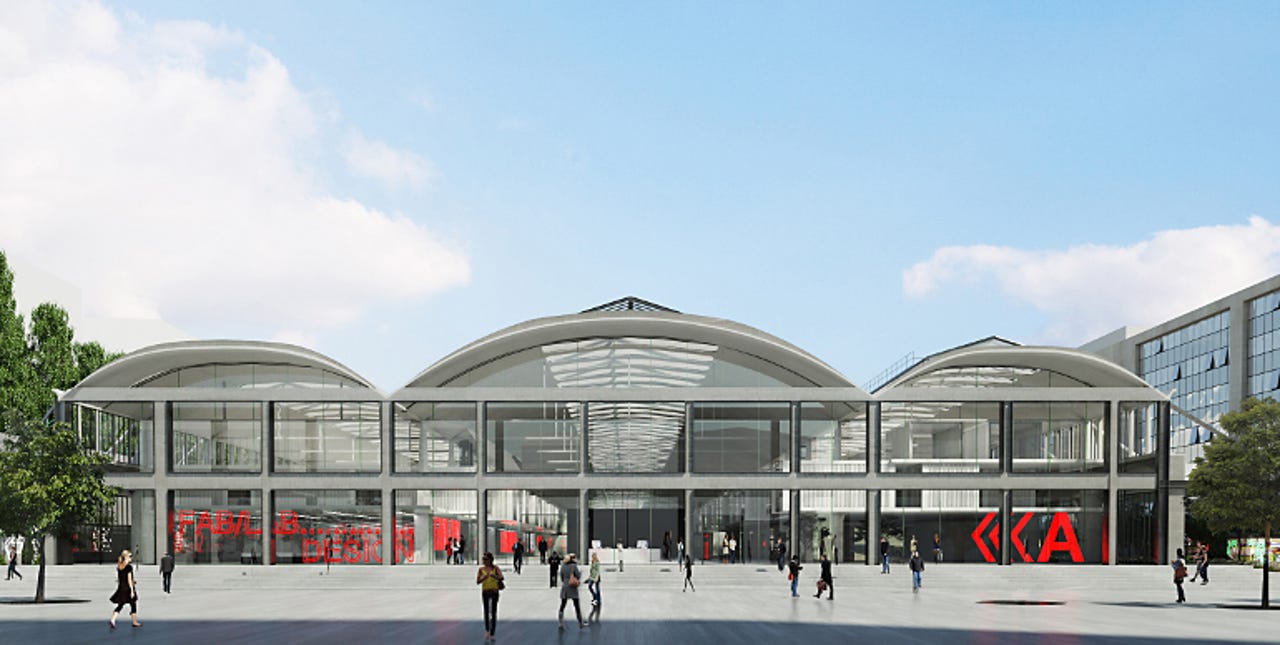Can Halle Freyssinet, world's largest incubator, seal France's place in tech startup major league?


Halle Freyssinet will house up to 1,000 startups at its Paris location.
France's tech startup scene has grown exponentially over the past few years. In 2015 more than 115 funding deals totaled €960m ($1,074m), which, according to Tech.eu, puts it in the billion-euro club along with the UK, Germany, and Israel.
Where French government-backed investment group Bpifrance financed 1,500 startups in 2013, the figure doubled to 3,000 in 2015. While it was just Criteo that raised €100m in 2013, six startups, including BlaBlaCar and Parrot, achieved this level of funding in 2015.
But what will surely cement Paris's place on the global startup map is its launch of the world's biggest digital incubator in 2017: Halle Freyssinet.
What Bpifrance head of innovation Paul-François Fournier describes as a flagship project for France, Halle Freyssinet will house 1,000 startups and benefits from a €200m investment from leading French entrepreneur, and founder of Iliad/Free, Xavier Niel.
"Paris is a leading startup hub with a growing number of high-growth startups and numerous incubators. But when we compare it with Silicon Valley, or even London or Berlin, Paris is quite fragmented," Niel says.
"The idea behind La Halle Freyssinet is to create a location that will put a high density of startups in one location and really bring the ecosystem together."
Halle Freyssinet, a 34,000 square meter ex-transport hub from the 1920s is located in the 13th arrondissement of Paris. Designed to serve entrepreneurs and attract new talent and investors, it comprises three areas.
The first is home to a 370-seat auditorium and meeting rooms. Then the heart of the building is dedicated to workspaces with open-plan desks, connected tables and startup services. The back of the building is home to a 24-hour restaurant.
Halle Freyssinet director Roxanne Varza will oversee startup selection, having previously run Microsoft's startup initiatives in France.
She views the incubator as a type of fédérateur, a way to unify the different elements of France's startup ecosystem.
"It is a project that will bring the different players of the ecosystem together, the 1,000 startups, but also investors, journalists, large corporations, government, and so on, to really work together in one location," Varza says.
Bpifrance's Paul-François Fournier, who was part of the team behind the successful 'French Tech' branding of France's startup scene launched by French minister for innovation and the digital economy Fleur Pellerin in 2013, sees Halle Freyssinet as a "milestone" for the French technology ecosystem.
He also attributes that growth to a shift in the financing ecosystem as well as a change in attitude towards employment.
"More and more youngsters want to be an entrepreneur," he says. "Five or 10 years ago they wanted to work in a big company like IBM. But now they want to be part of a new movement."
A 2015 study from BNP Paribas of over 3,000 15- to 20-year-olds, found that 47 percent wanted to start their own business. Rejecting the previous trend for employment that favored CDIs, the most secure working contract in France, and permanent jobs, 53 percent wanted to be their own boss with 84.5 percent wanting to do work they felt passionate about.
A recent study by NUMA and Roland Berger of 375 startups found that 72 percent started their businesses for a challenge.
This change in attitude towards employment, along with the increase in financing and facilities for entrepreneurs are proving to be fruitful ingredients in the creation of France's startup ecosystem, with Halle Freyssinet described by Fournier as the "cherry on the cake".
The heart of the building is dedicated to workspaces with open-plan desks, connected tables, and startup services.